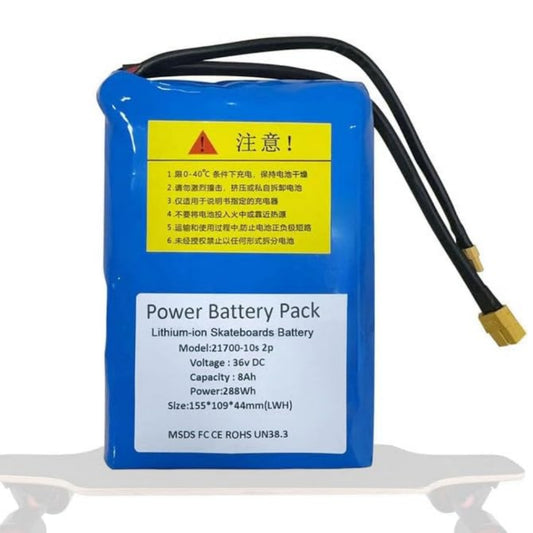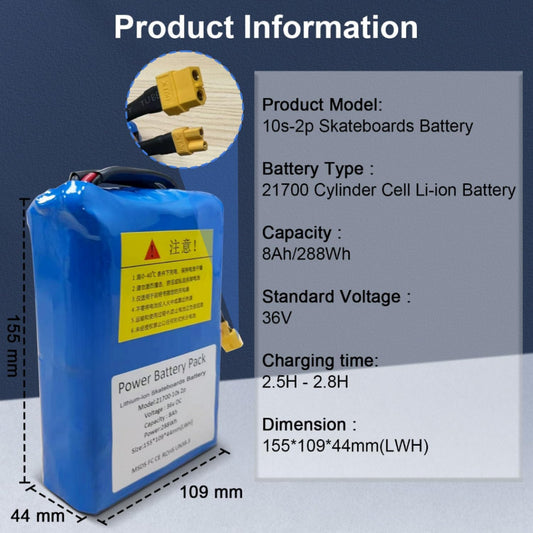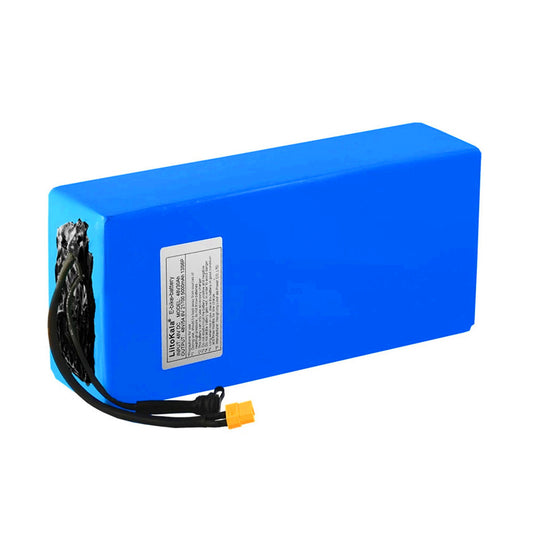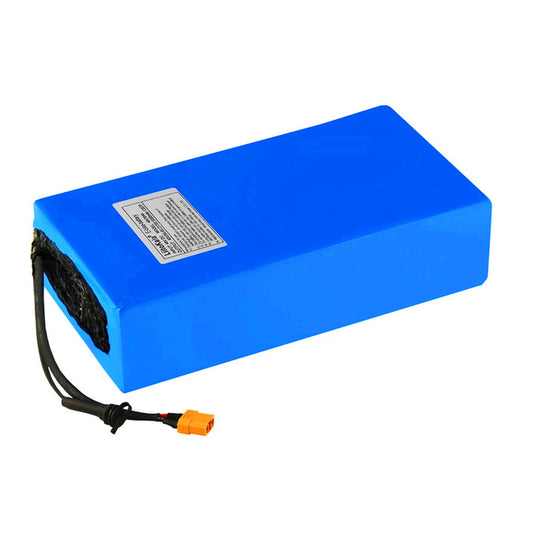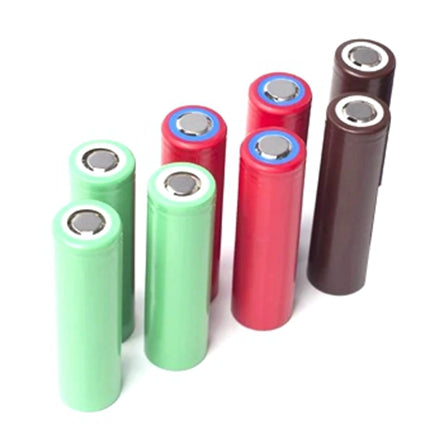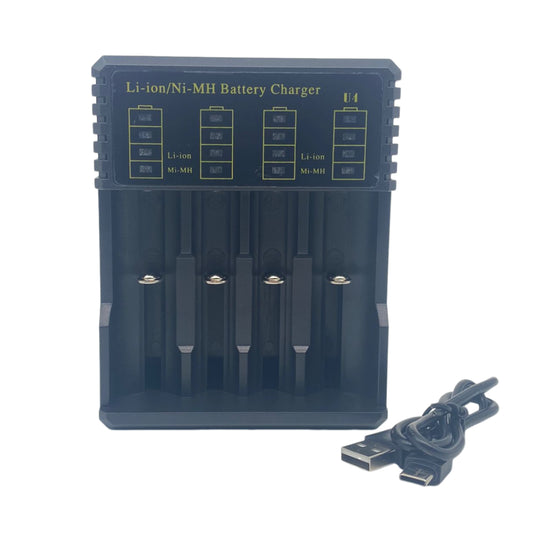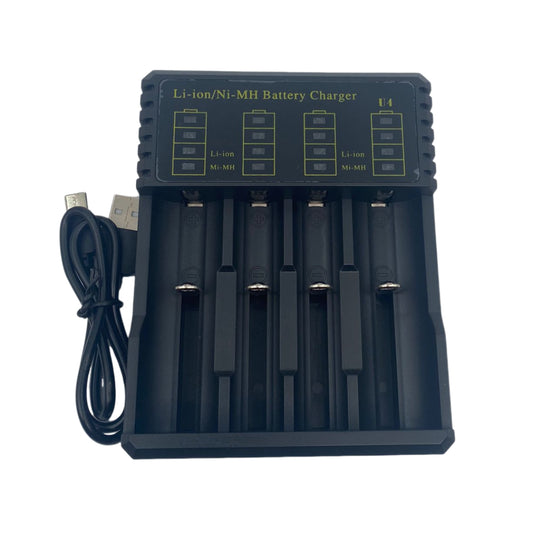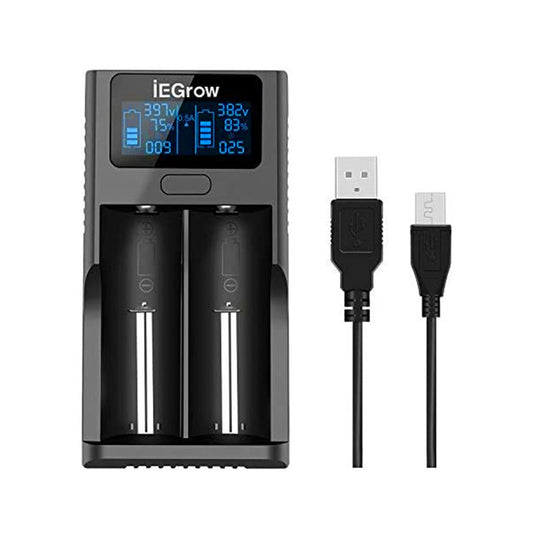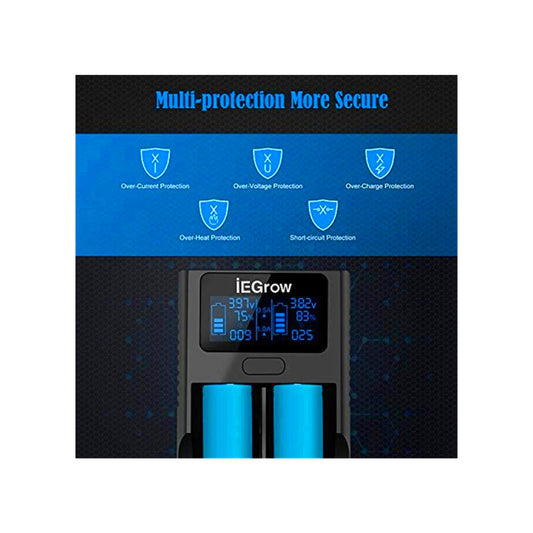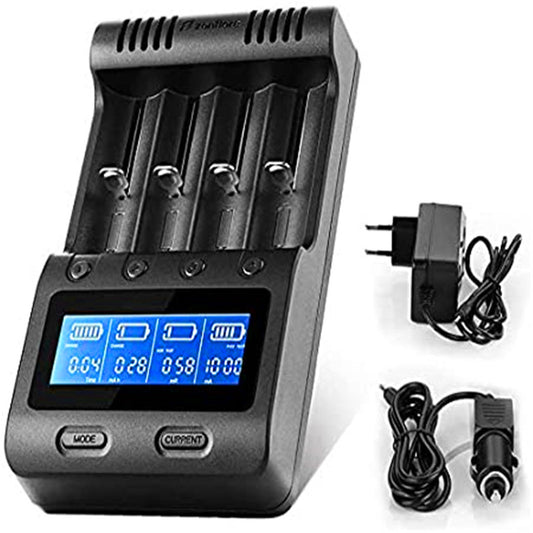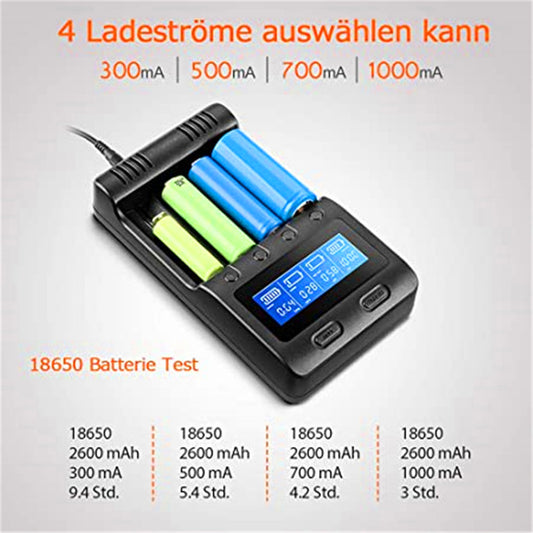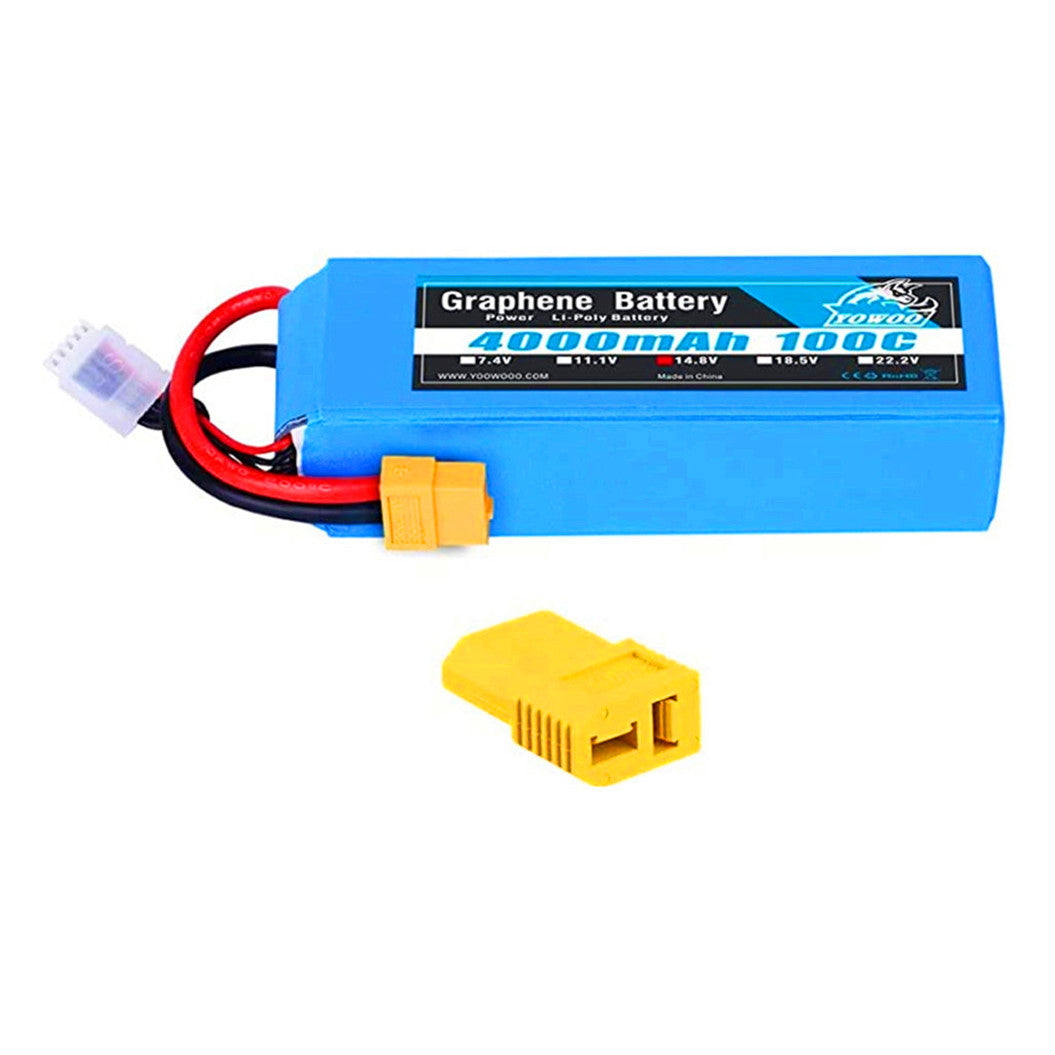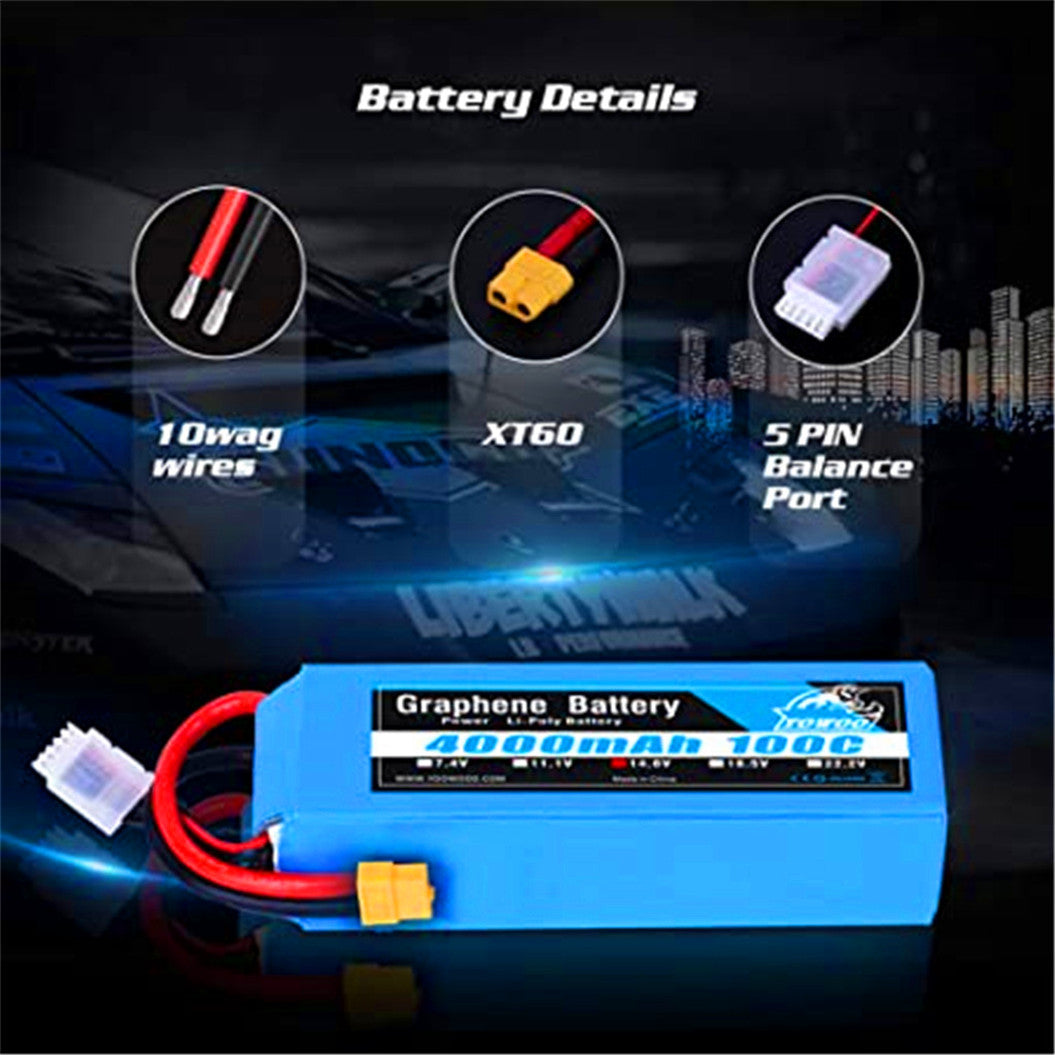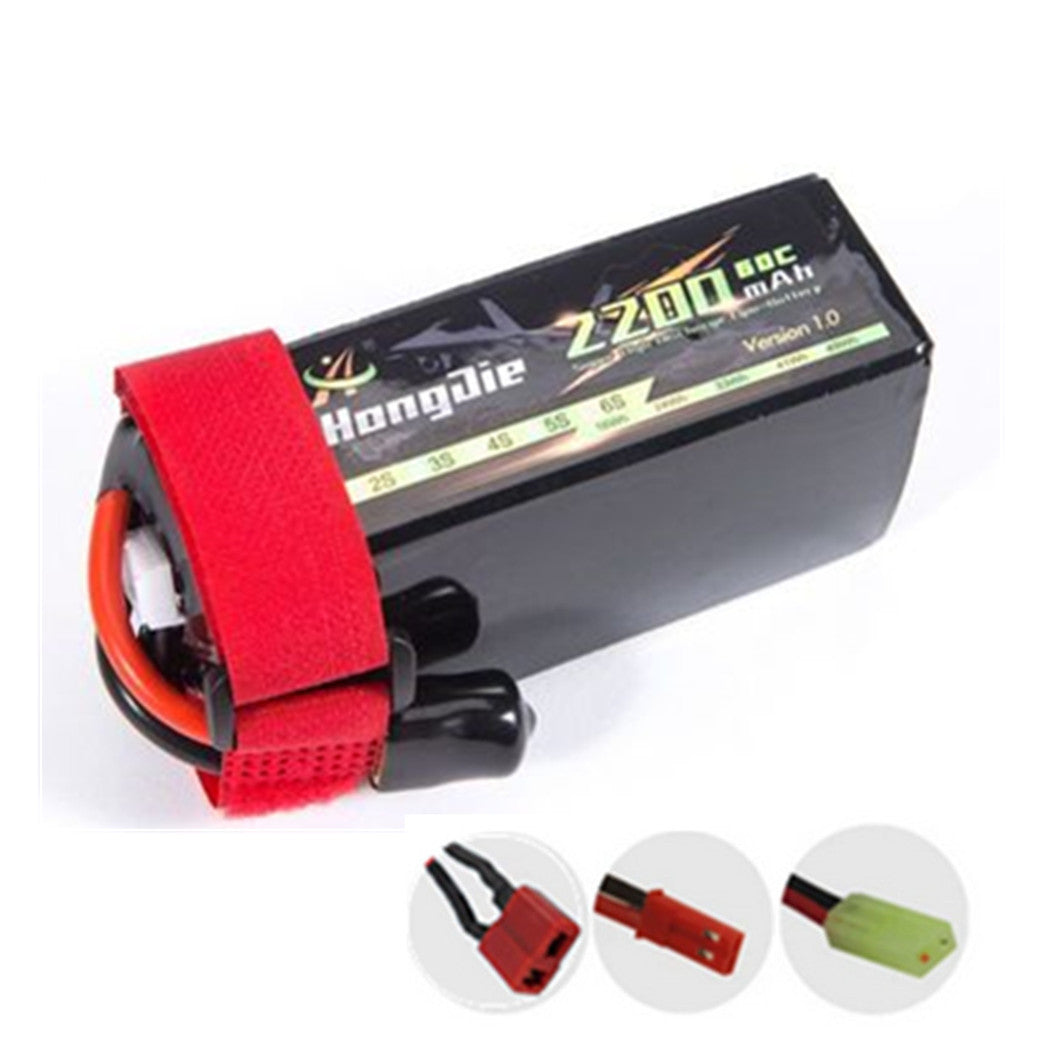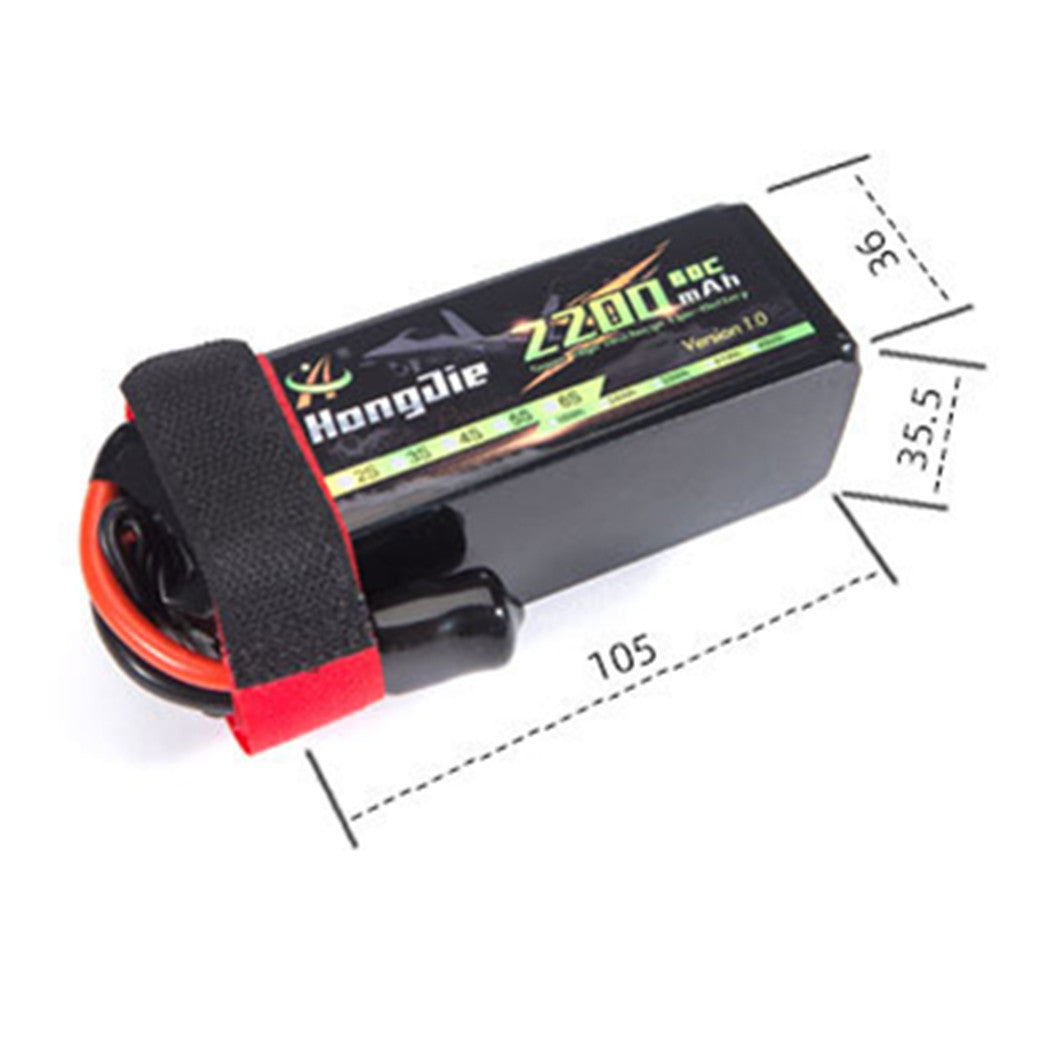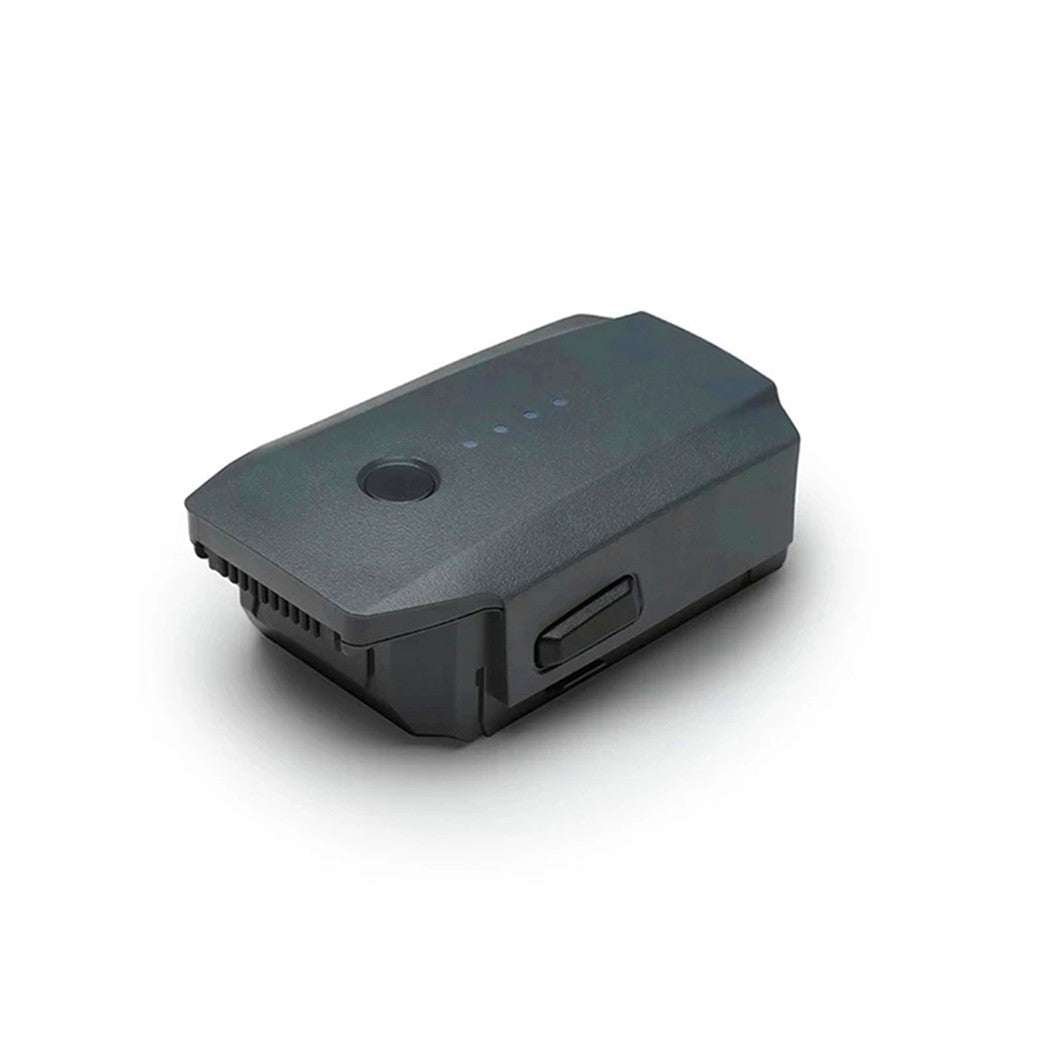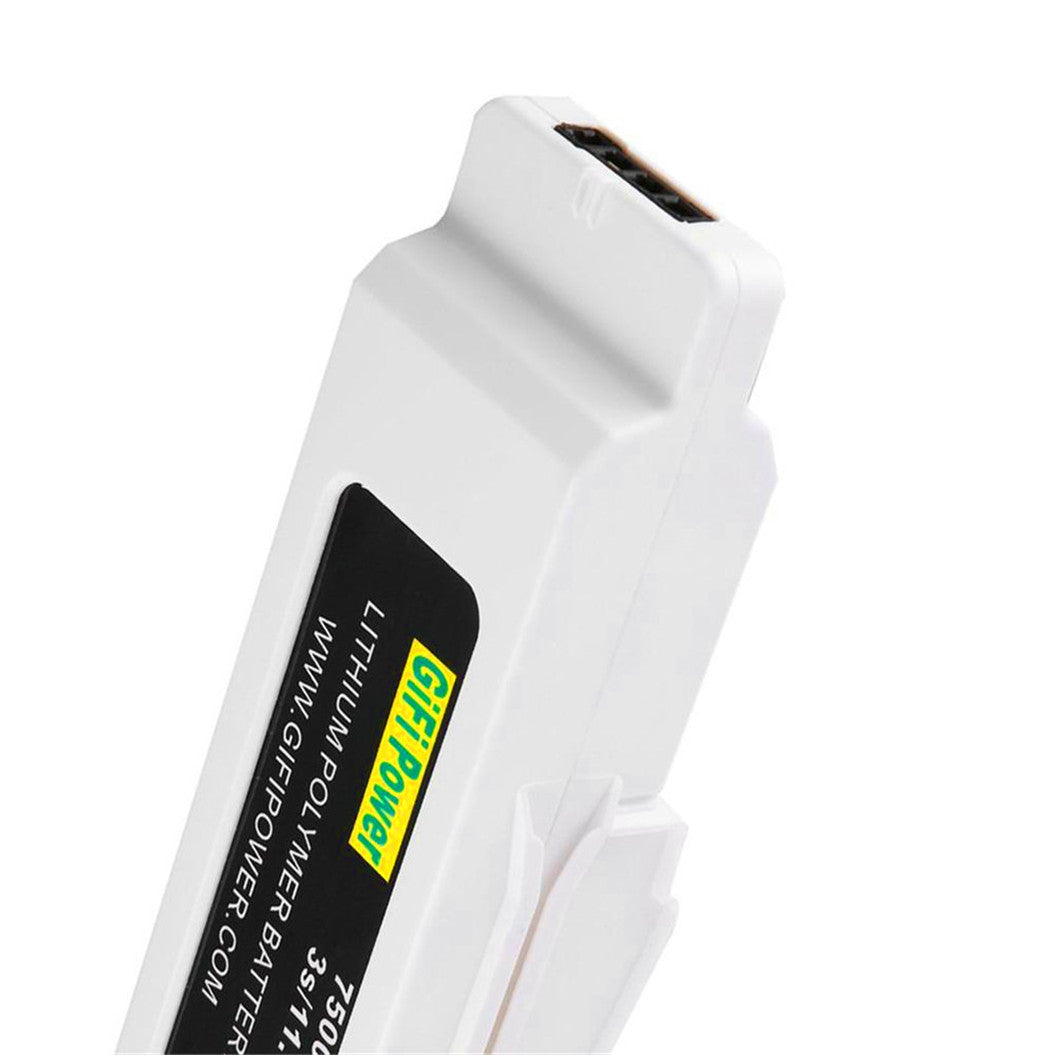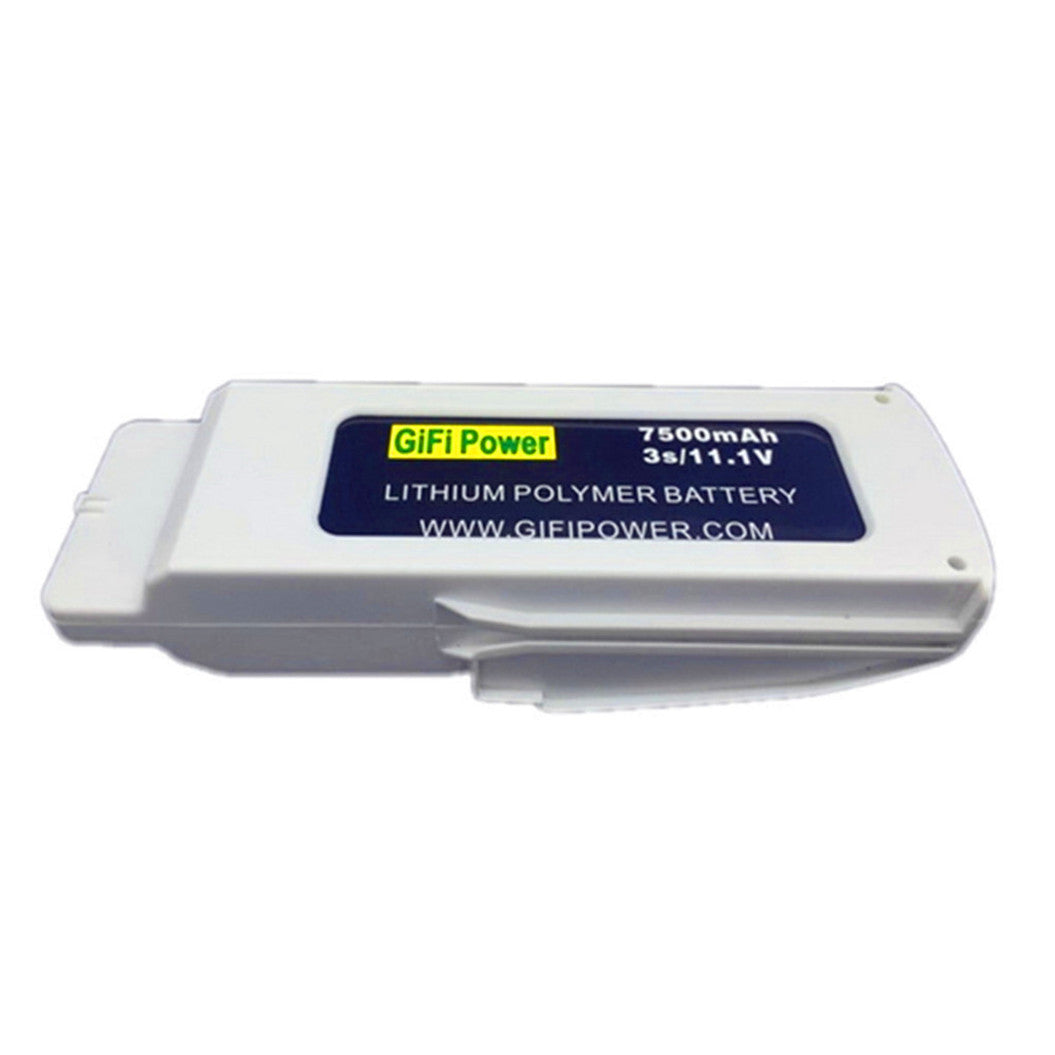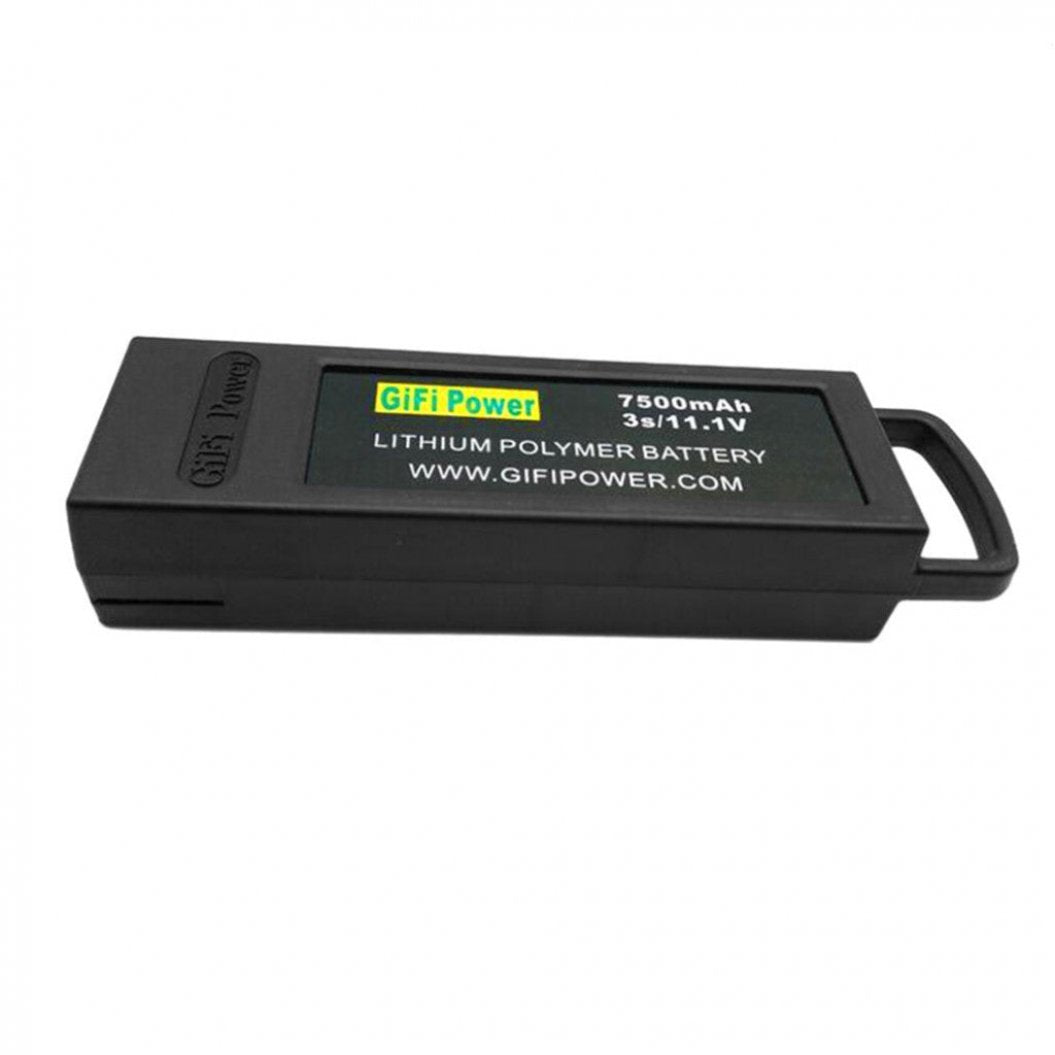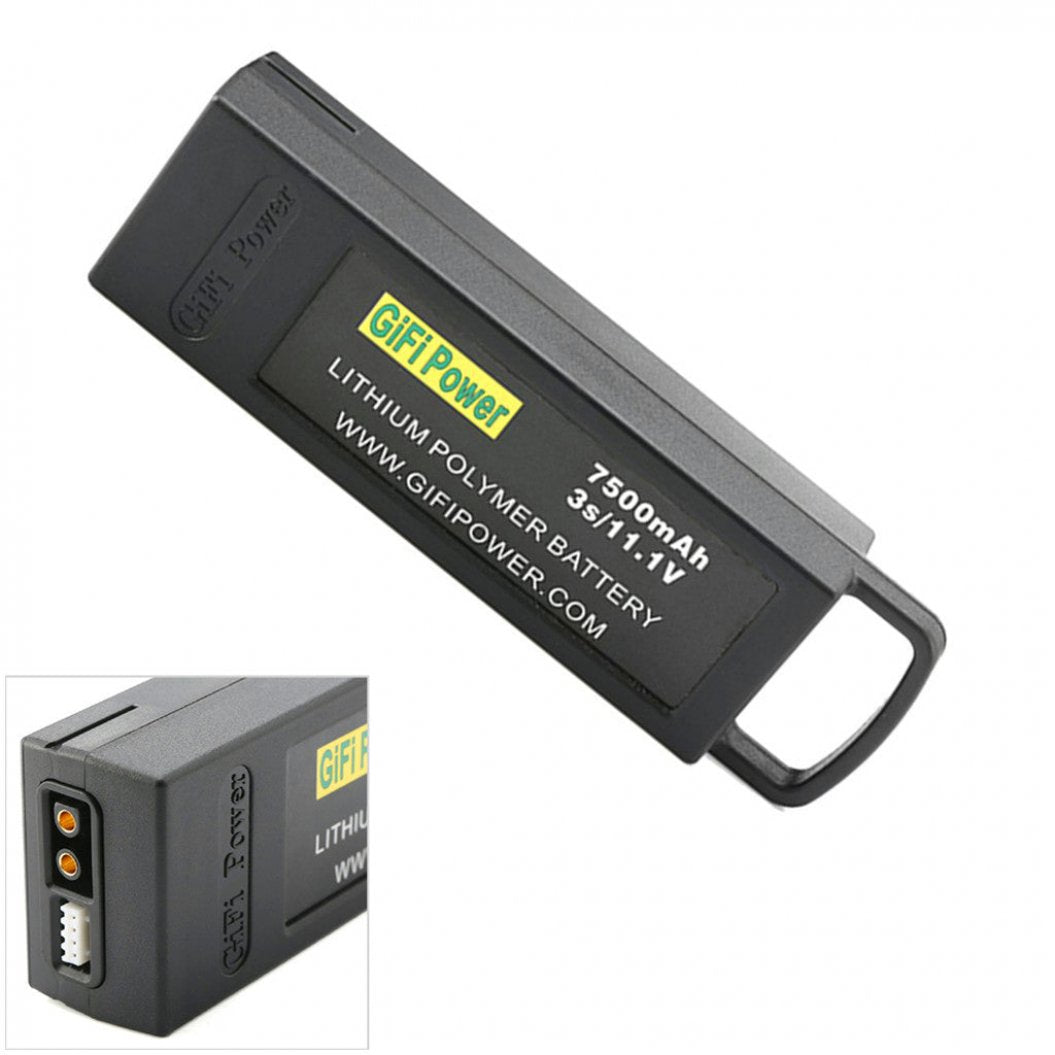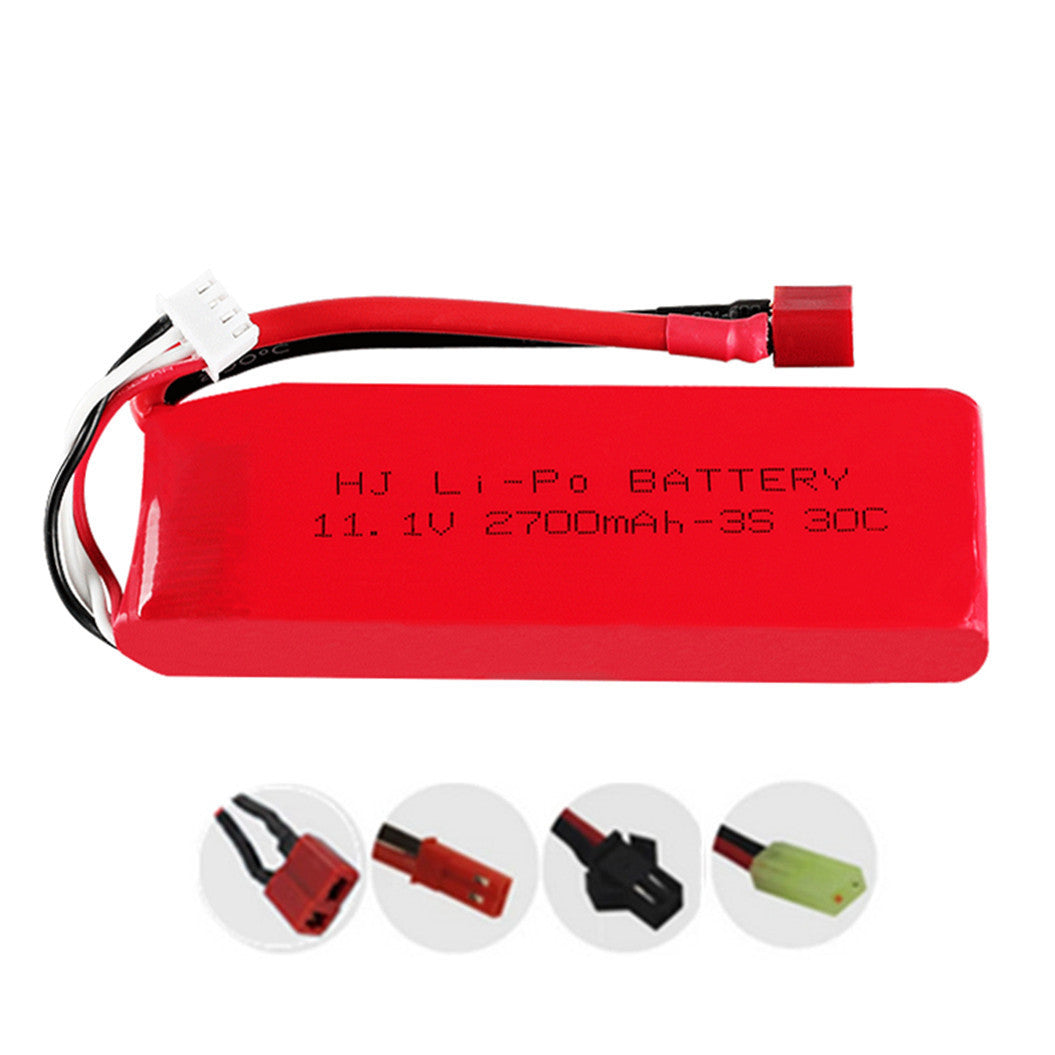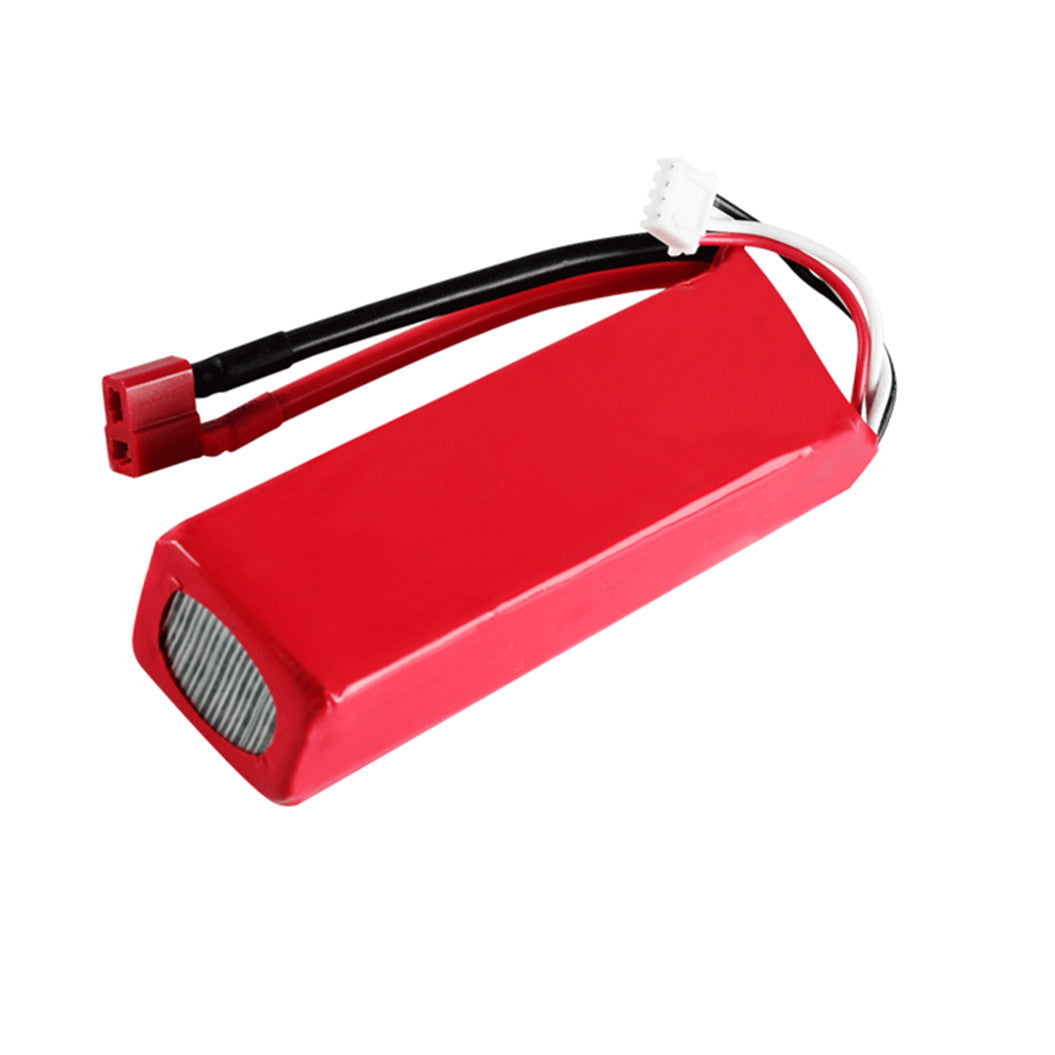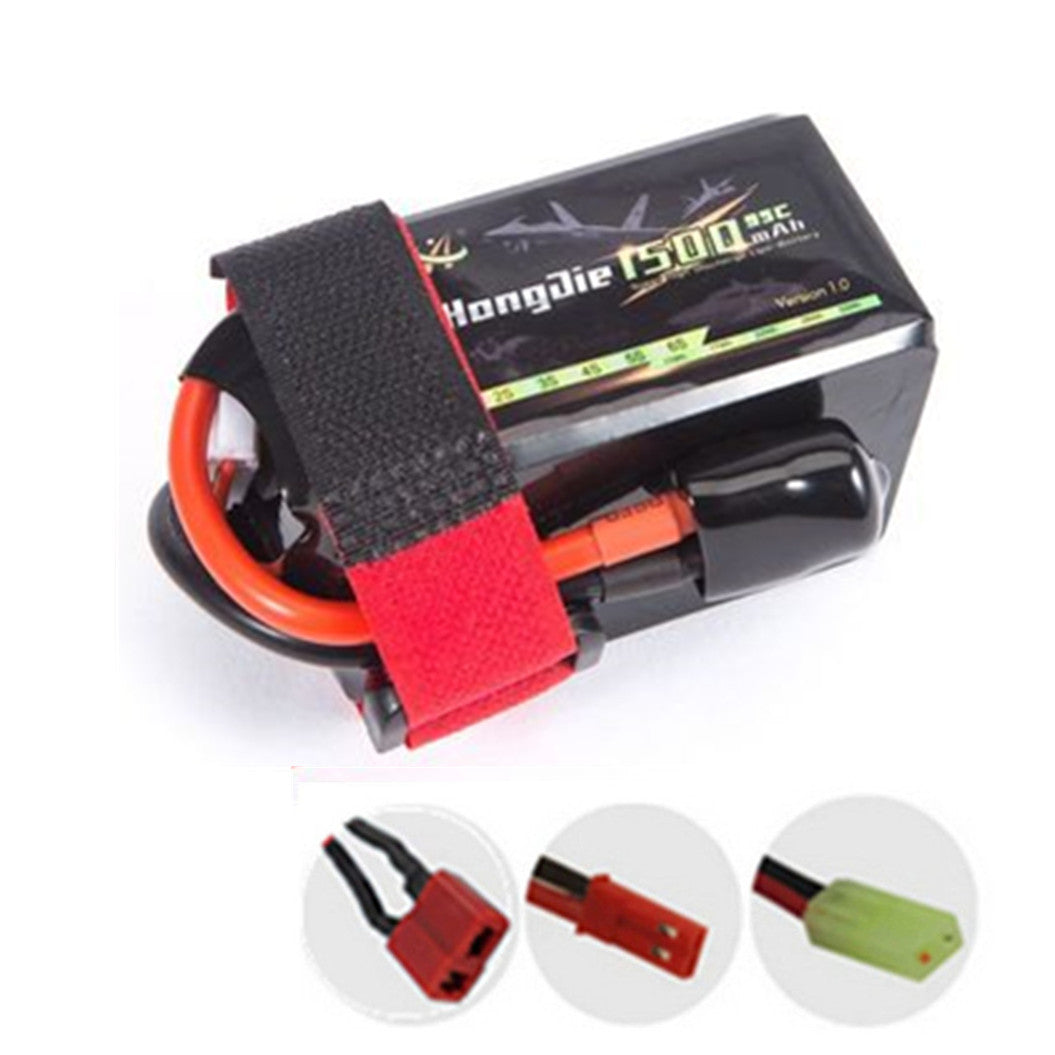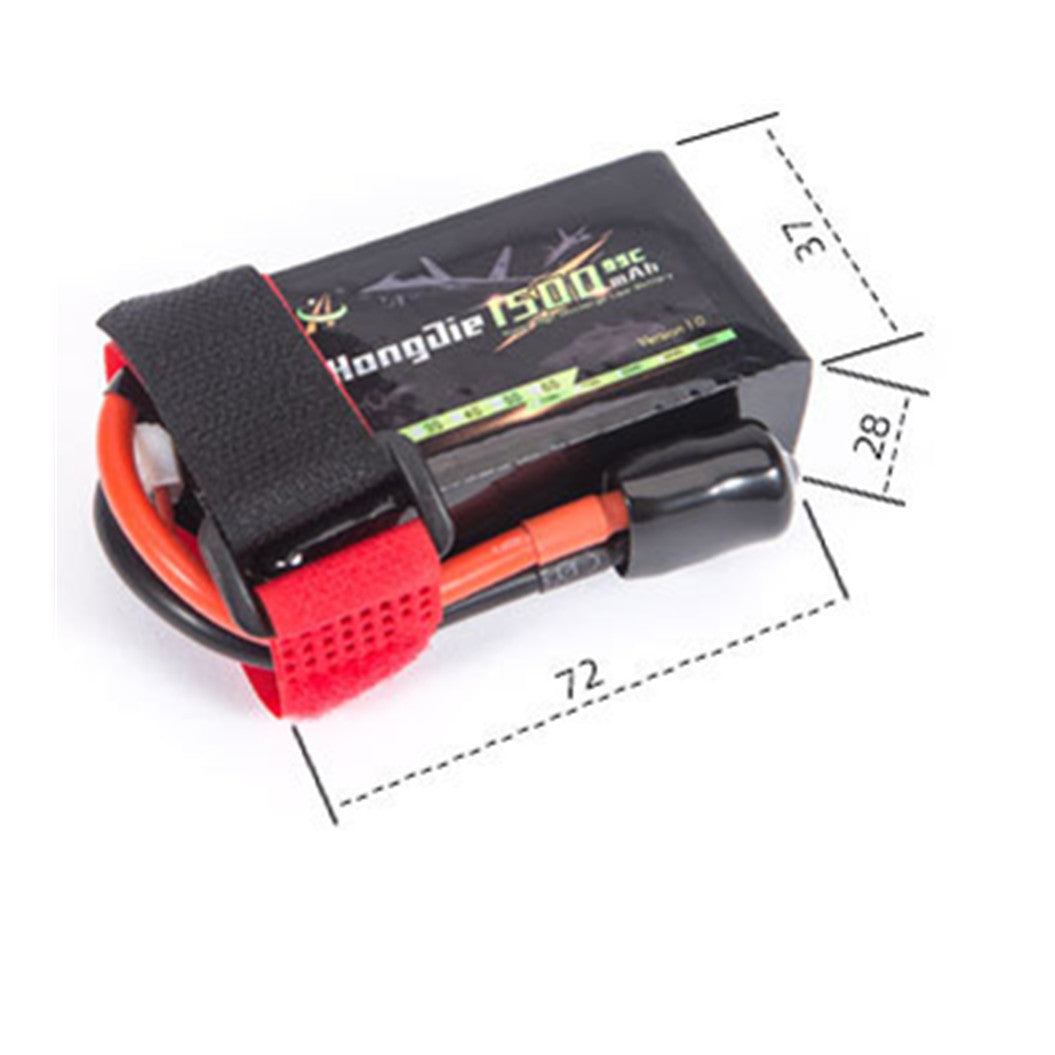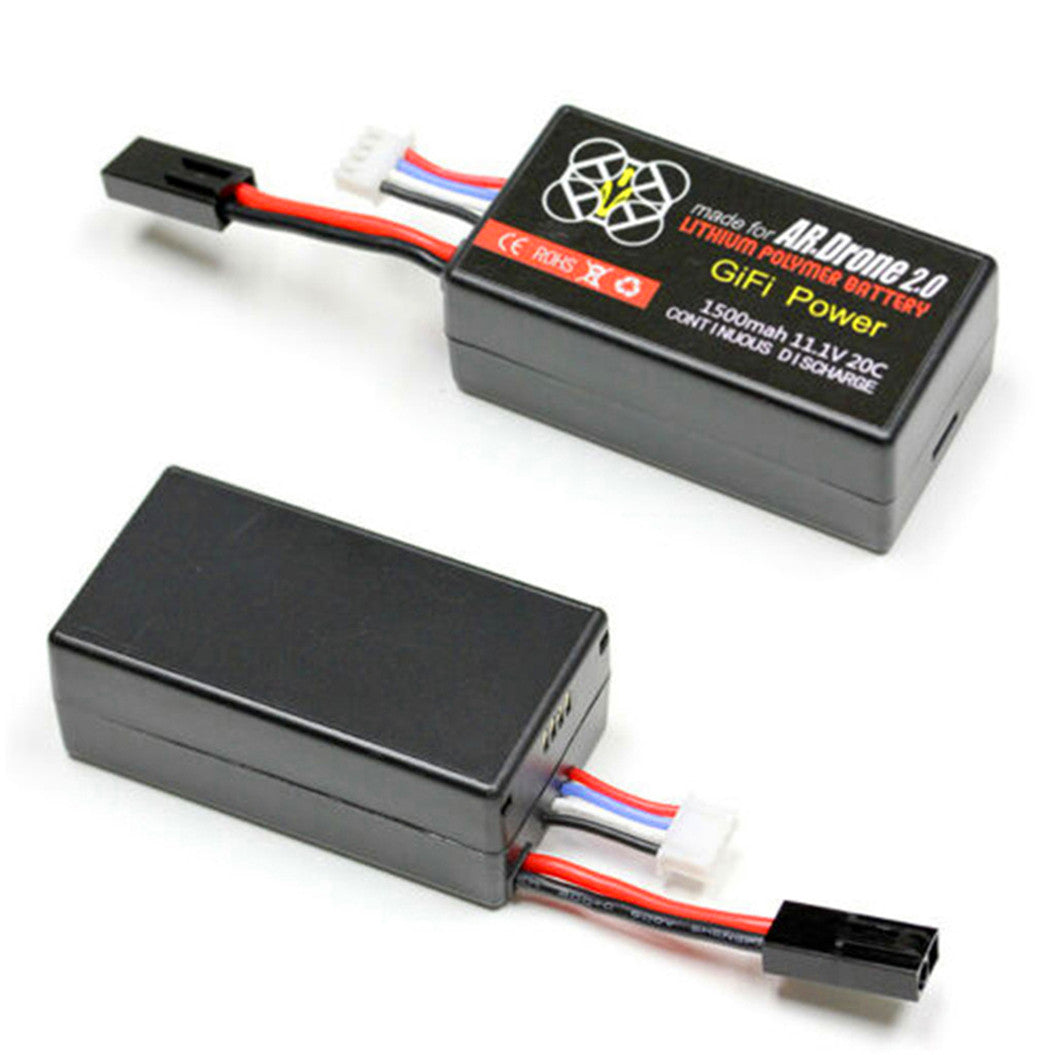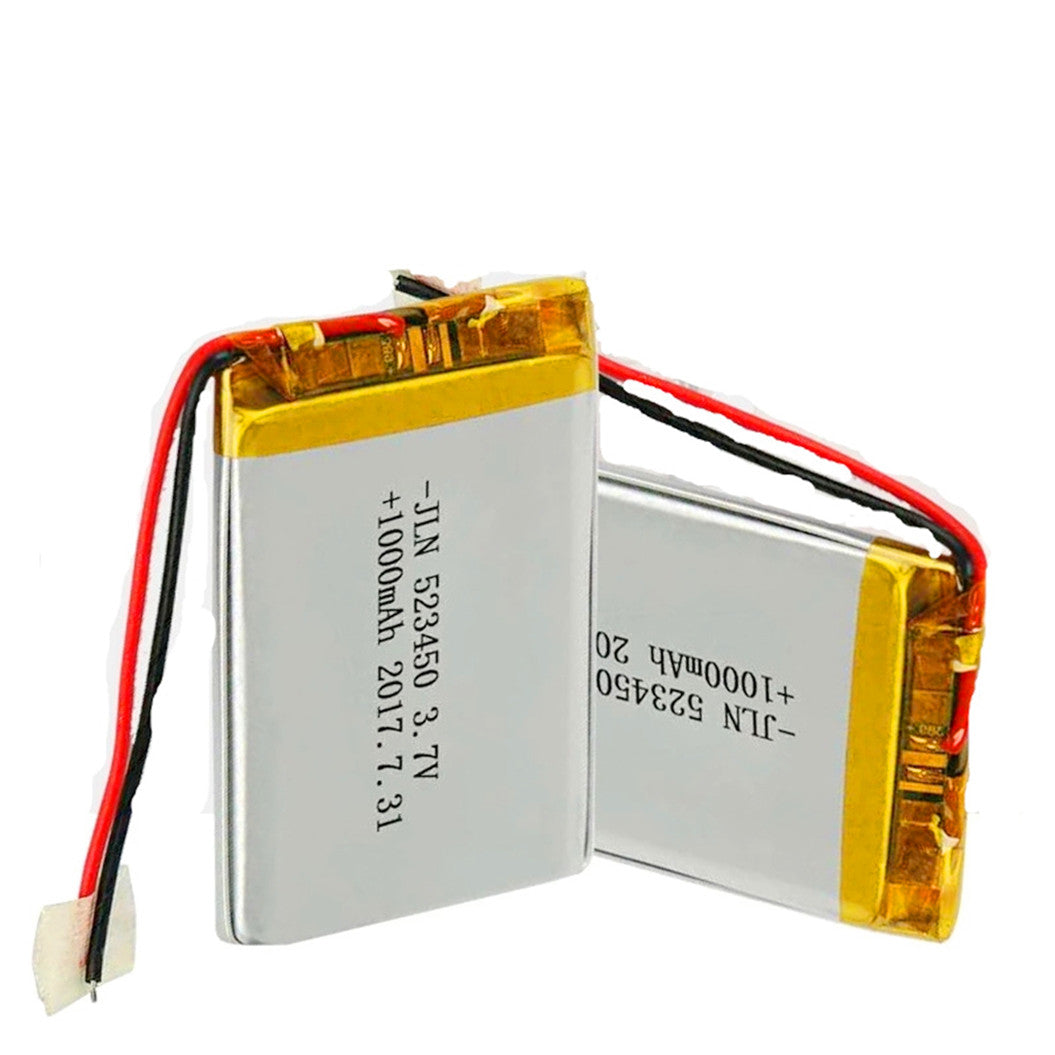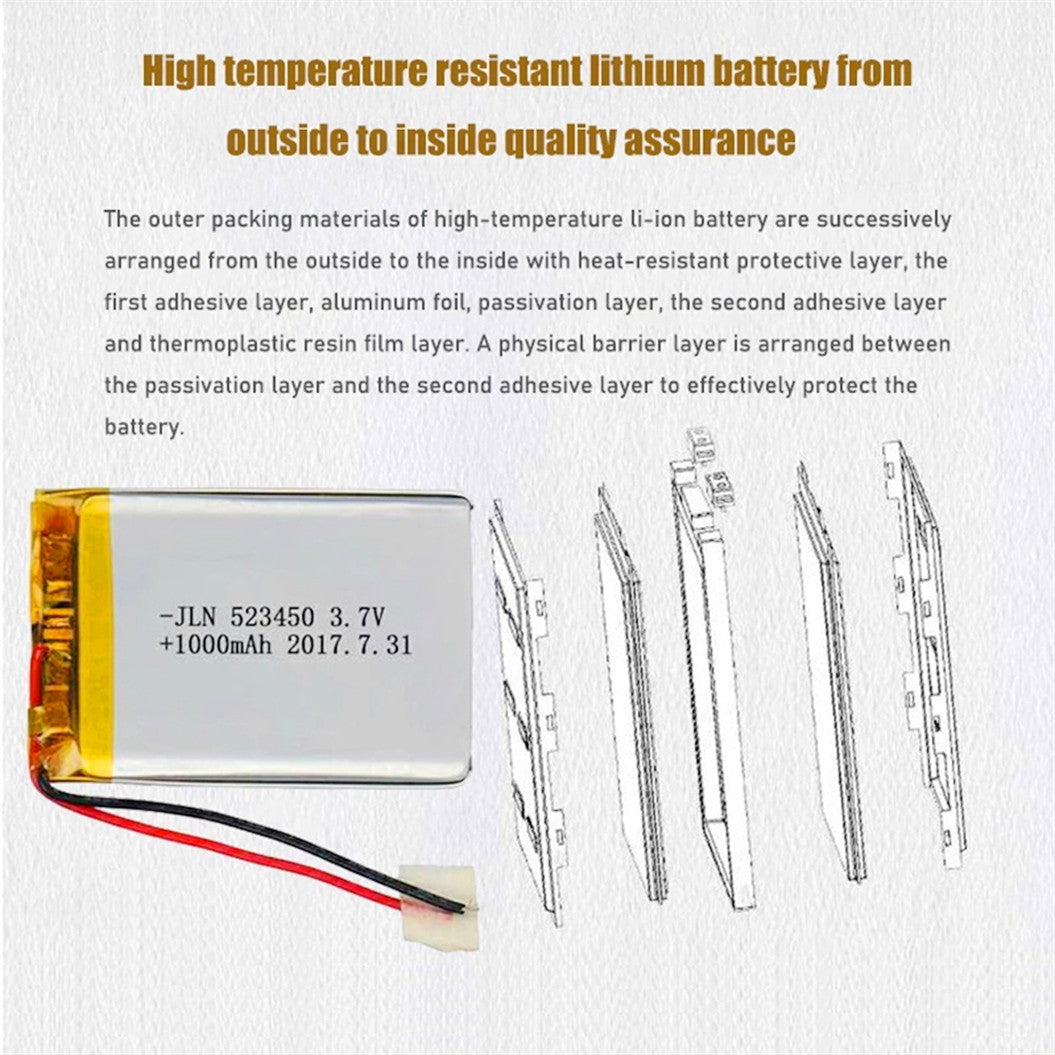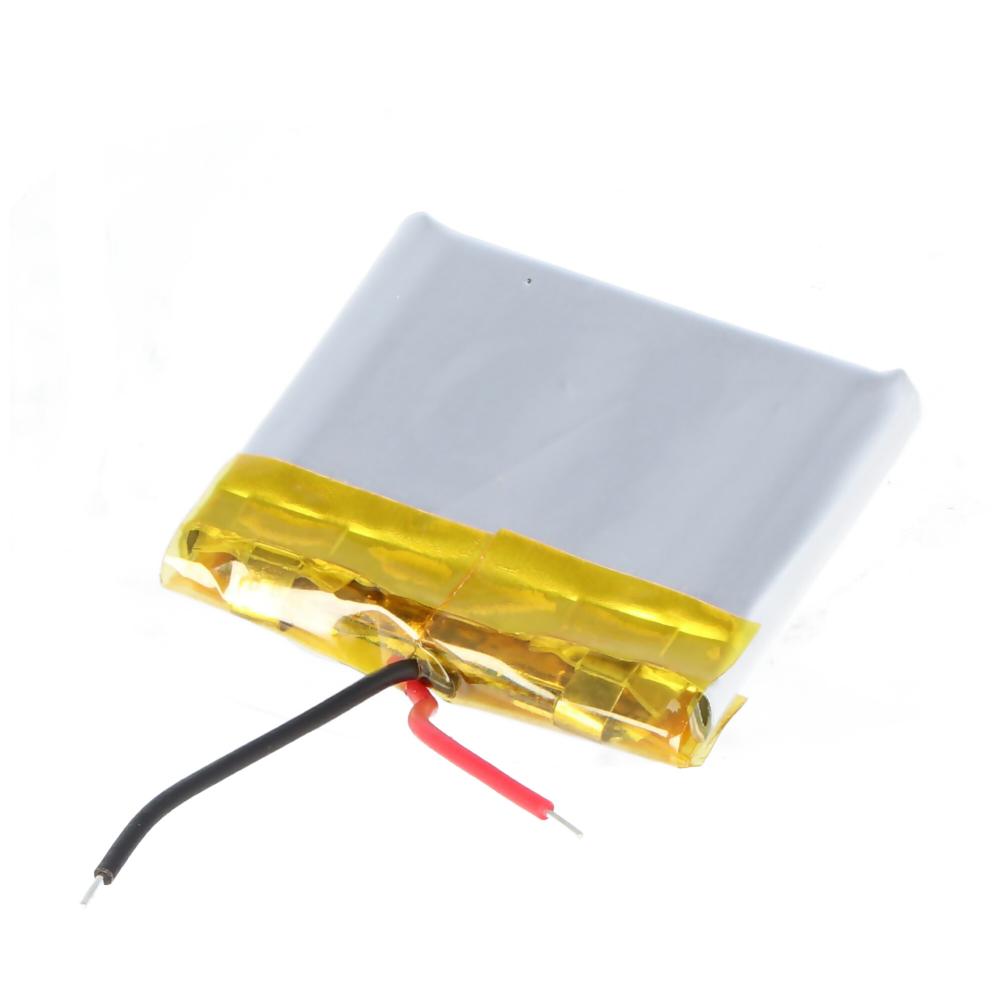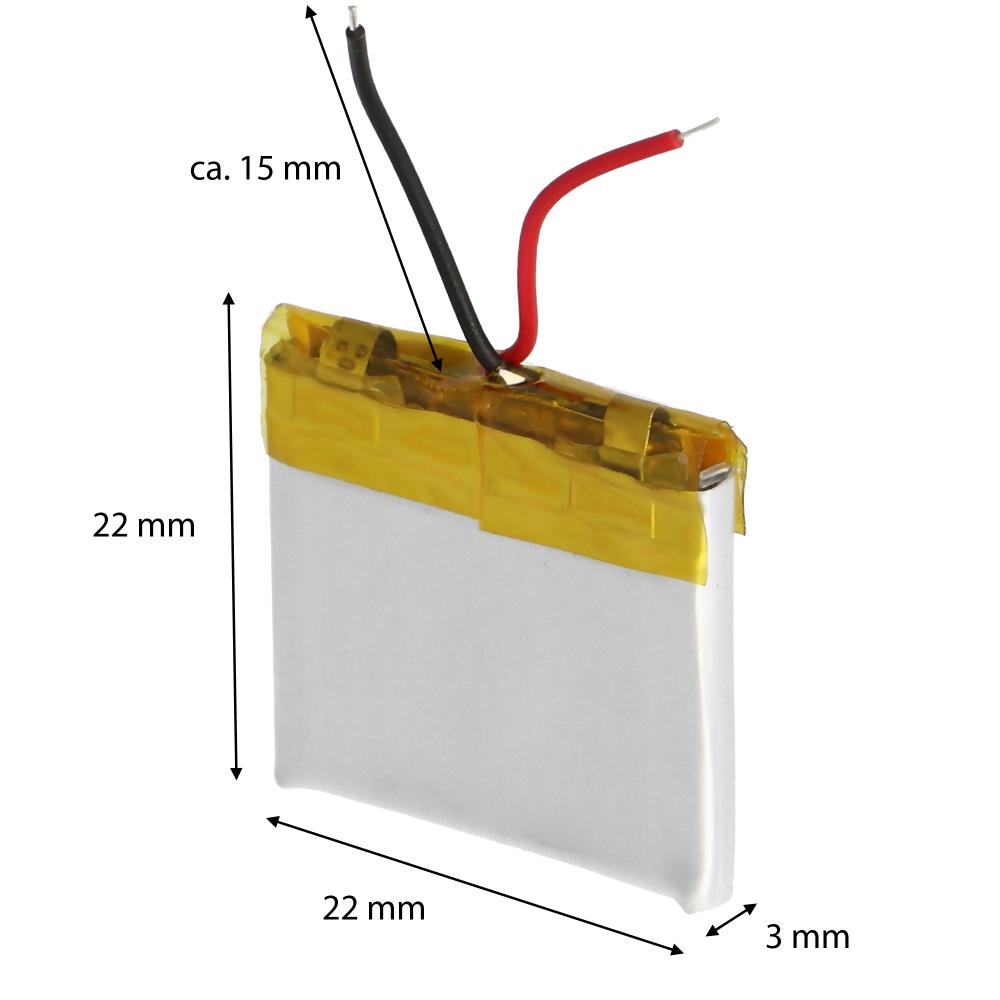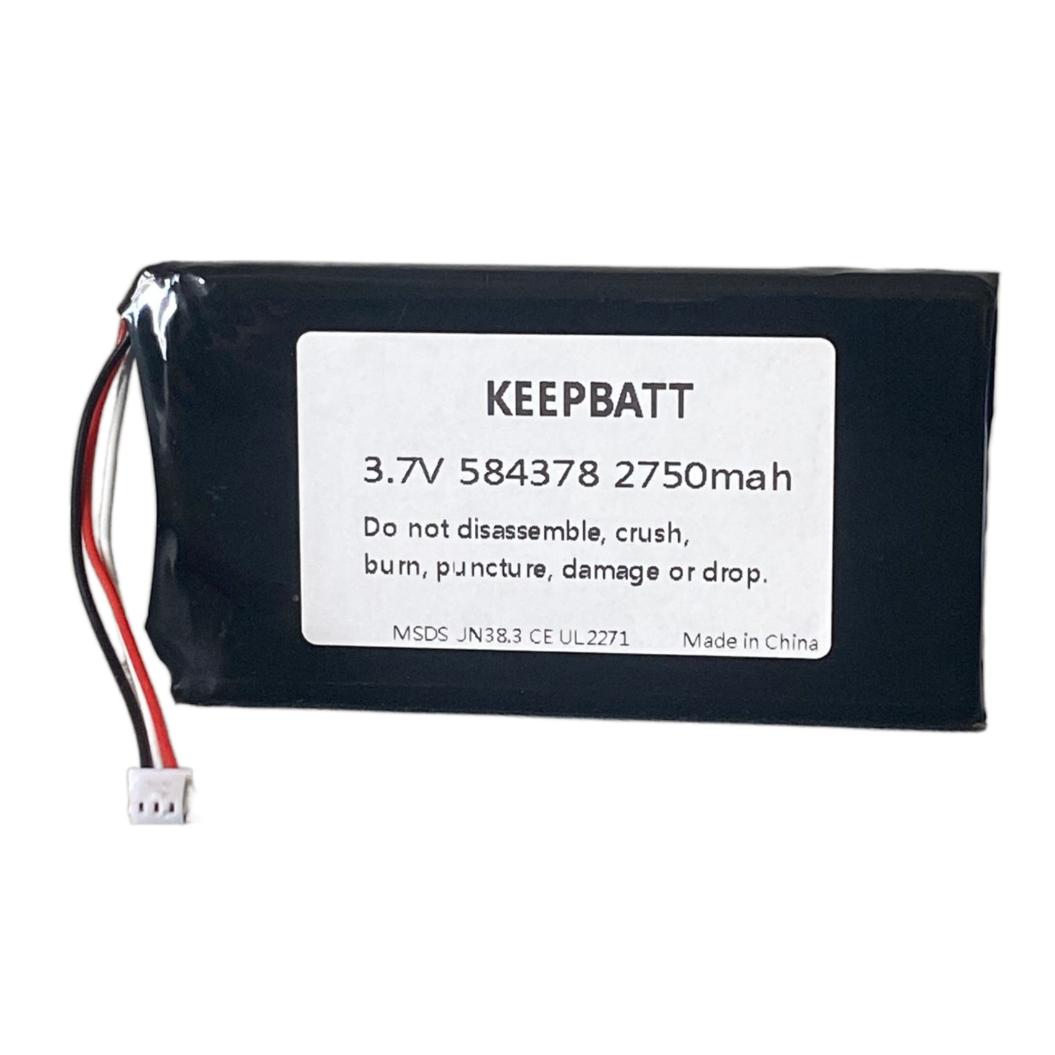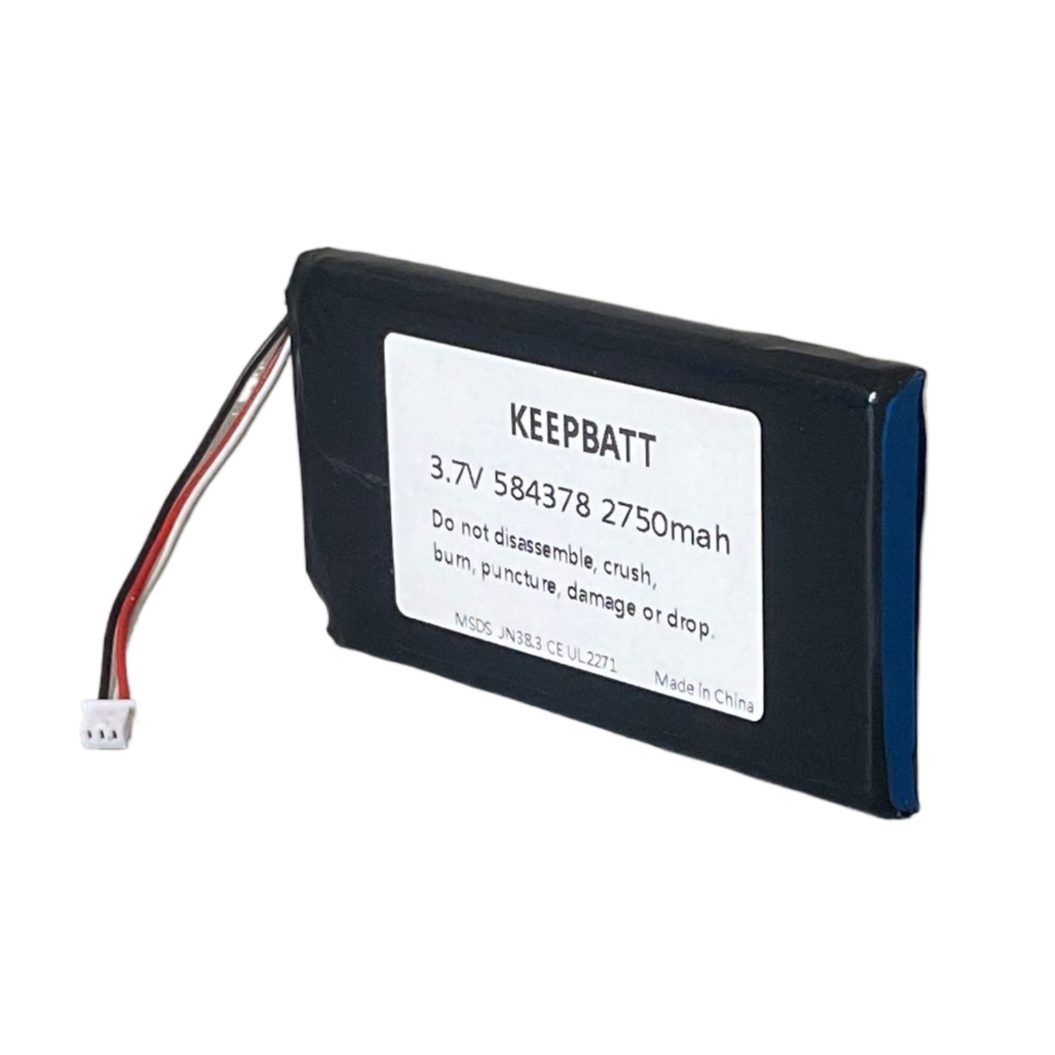-
Fornecedor:BATTERYINT
Bateria LiPo Inteligente 15.2V 4500mAh para Drone Phantom 3
- Preço normal
- $72.84
- Preço normal
-
- Preço de saldo
- $72.84
- Preço unitário
- por
Bateria LiPo Inteligente 15... -
Fornecedor:BATTERYINT
Bateria de Lítio 14.8V 4000mAh com Conectores XT60 e Deans T para Avião, Multirrotor, Carro, Caminhão, Barco
- Preço normal
- $73.05
- Preço normal
-
- Preço de saldo
- $73.05
- Preço unitário
- por
Bateria de Lítio 14.8V 4000... -
Fornecedor:BATTERYINT
Bateria Li-Polymer 14.8V 2200mAh 4S 853496 para Avião RC, Helicóptero e Quadcopter
- Preço normal
- $50.00
- Preço normal
-
- Preço de saldo
- $50.00
- Preço unitário
- por
Bateria Li-Polymer 14.8V 22... -
Fornecedor:BATTERYINT
Bateria de Voo Inteligente 11.4V 3830mAh - Até 27 minutos de tempo de voo. Verifique o status através do aplicativo GO
- Preço normal
- $99.18
- Preço normal
-
- Preço de saldo
- $99.18
- Preço unitário
- por
Bateria de Voo Inteligente ... -
Fornecedor:BATTERYINT
11.1V 7500mAh 3S Lithium LiPo RC Battery for Blade Chroma RC Quadcopter
- Preço normal
- $85.99
- Preço normal
-
- Preço de saldo
- $85.99
- Preço unitário
- por
11.1V 7500mAh 3S Lithium Li... -
Fornecedor:BATTERYINT
11.1V 7500mAh 3S Flight LiPo Battery for Yuneec Q500, Q500+ 4K & Typhoon RC Drone
- Preço normal
- $85.99
- Preço normal
-
- Preço de saldo
- $85.99
- Preço unitário
- por
11.1V 7500mAh 3S Flight LiP... -
Fornecedor:BATTERYINT
Bateria Li-Polymer 11.1V 2700mAh 803496 para Barco RC FT012 Brushless
- Preço normal
- $36.50
- Preço normal
-
- Preço de saldo
- $36.50
- Preço unitário
- por
Bateria Li-Polymer 11.1V 27... -
Fornecedor:BATTERYINT
Bateria Li-Polymer 11.1V 1500mAh 853562 3S para Avião RC, Helicóptero e Quadcopter
- Preço normal
- $30.50
- Preço normal
-
- Preço de saldo
- $30.50
- Preço unitário
- por
Bateria Li-Polymer 11.1V 15... -
Fornecedor:BATTERYINT
Bateria LiPo 11.1V 1500mAh 20C com 2 Conectores Parrot AR para Quadcopter UAV 2.0
- Preço normal
- $23.99
- Preço normal
-
- Preço de saldo
- $23.99
- Preço unitário
- por
Bateria LiPo 11.1V 1500mAh ... -
Fornecedor:BATTERYINT
Bateria Recarregável de Polímero de Lítio 1000mAh 3.7V para GPS, DVD, MP3, MP5, LED
- Preço normal
- $4.99
- Preço normal
-
- Preço de saldo
- $4.99
- Preço unitário
- por
Bateria Recarregável de Pol... -
Fornecedor:BATTERYINT
3.7V 100mAh LiPo Replacement Battery Compatible with Bosch 052030 502030 E-Bike Computer
- Preço normal
- $9.99
- Preço normal
-
- Preço de saldo
- $9.99
- Preço unitário
- por
3.7V 100mAh LiPo Replacemen... -
Fornecedor:BATTERYINT
3.8V 2570mAh Replacement Samsung 584378 Polymer Lithium Battery with 3-Wire PCB
- Preço normal
- $18.90
- Preço normal
-
- Preço de saldo
- $18.90
- Preço unitário
- por
3.8V 2570mAh Replacement Sa...
Showing 145 -156 of 345 items
1. How to Charge Lipo Battery?
These are the safe charging tips for LiPo batteries:
- Always use a charger specifically designed for LiPo batteries to prevent overcharging or undercharging.
- Before charging, set the charger’s current and voltage to match the battery’s specifications, typically at 1C, which is twice the battery’s capacity.
- During charging, place the lithium ion polymer battery in a fireproof bag or on a flat surface that is free of flammable materials.
- Closely monitor the lithium polymer battery during charging and ensure that it is not left unattended for extended periods.
- Always use a charger specifically designed for LiPo batteries to prevent overcharging or undercharging.
- Before charging, set the charger’s current and voltage to match the battery’s specifications, typically at 1C, which is twice the battery’s capacity.
- During charging, place the lithium ion polymer battery in a fireproof bag or on a flat surface that is free of flammable materials.
- Closely monitor the lithium polymer battery during charging and ensure that it is not left unattended for extended periods.
2. How to Store Lipo Battery?
When storing Lithium Polymer (LiPo) batteries, they should be kept at approximately 50% charge, which will help to prolong battery life. The lithium ion polymer battery should be stored in a dry, cool environment, away from direct sunlight and extreme temperatures.
In addition, batteries should be stored in a fireproof bag or special safety box to prevent accidents. In addition, if not used for a long period, perform a light charge and discharge every few months to maintain battery performance.
In addition, batteries should be stored in a fireproof bag or special safety box to prevent accidents. In addition, if not used for a long period, perform a light charge and discharge every few months to maintain battery performance.
3. What Is the Lifespan of a Lipo Battery?
In general, lithium polymer batteries can support approximately 300 to 500 charge/discharge cycles if properly used and maintained. To extend battery life, avoid overcharging and over-discharging, and keep the lithium ion polymer battery at the proper temperature during use and storage.
4. How to Prevent Lipo Battery from Expansion and Explosion?
These tips below prevent lithium polymer (lipo) batteries from expanding or explosion:
- Ensure that you are using a charger that is specifically designed for LiPo batteries and that you strictly follow the battery’s charging specifications.
- Avoid exposing the lithium polymer battery to extreme temperatures or direct sunlight during charging and use.
- Ensure that the lithium ion polymer battery is not physically damaged. Regularly inspect the battery for any signs of wear or damage.
- If the LiPo batteries show signs of swelling, discontinue use immediately to prevent further risks such as expansion or explosion.
- Ensure that you are using a charger that is specifically designed for LiPo batteries and that you strictly follow the battery’s charging specifications.
- Avoid exposing the lithium polymer battery to extreme temperatures or direct sunlight during charging and use.
- Ensure that the lithium ion polymer battery is not physically damaged. Regularly inspect the battery for any signs of wear or damage.
- If the LiPo batteries show signs of swelling, discontinue use immediately to prevent further risks such as expansion or explosion.
5. What Is the Difference Between a 4s Lipo Battery and a 3s LiPo Battery?
The main differences between 4s lipo batteries and 3s LiPo batteries are the number of cells and the total voltage. 3s batteries consist of three cells in series and typically have a voltage of 11.1 volts, while 4s batteries consist of four cells in series and typically have a voltage of 14.8 volts.
However, higher voltages may also require electronic equipment to have a higher voltage tolerance, so the voltage compatibility of equipment must be considered when choosing a lithium polymer battery.
However, higher voltages may also require electronic equipment to have a higher voltage tolerance, so the voltage compatibility of equipment must be considered when choosing a lithium polymer battery.
6. How Long Does It Take to Charge a 4s Lipo Battery?
Typically, most 4-cell LiPo batteries take about 1 to 1.5 hours to fully charge when charged at a 1C charge rate (i.e. the current value for the rated capacity of the battery).
For example, a 5000mAh battery will take about 1 hour to fully charge at 5A charge current. Ensure that you use the appropriate charger for your lithium polymer battery to maintain its health and safety.
For example, a 5000mAh battery will take about 1 hour to fully charge at 5A charge current. Ensure that you use the appropriate charger for your lithium polymer battery to maintain its health and safety.
7. Which Is Better, Lifepo4 or Lipo Battery?
LiFePO4 batteries are known for their longer life and increased safety. It is usually more suitable for applications that require long-term reliability, such as electric vehicles and solar energy storage systems.
LiPo batteries, on the other hand, offer higher energy density and power output. Ideal for devices with stringent weight and size requirements, such as UAVs and RC models.
LiPo batteries, on the other hand, offer higher energy density and power output. Ideal for devices with stringent weight and size requirements, such as UAVs and RC models.
8. Which Is Better, Nimh or Lipo Battery?
NiMH batteries are more environmentally friendly and less expensive, making them suitable for every day and low-power devices.
LiPo batteries, on the other hand, offer higher energy density and discharge rates, making them more suitable for use in high-power devices such as drones and high-performance RC cars.
LiPo batteries, on the other hand, offer higher energy density and discharge rates, making them more suitable for use in high-power devices such as drones and high-performance RC cars.


